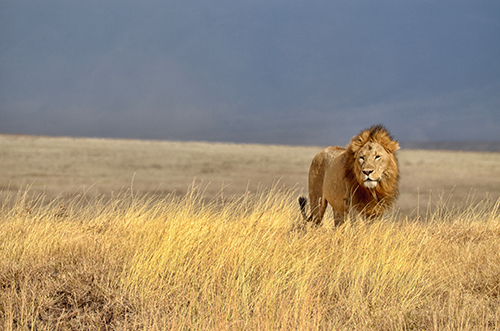 Culture & Ethics
Culture & Ethics
 Faith & Science
Faith & Science
The Human Side of Trophy Hunting

I am no fan of trophy hunting. But the recent hysteria that has seen bans instituted in a few African countries is causing real harm to humans.
That is the gist of the (surprising) New York Times story about how a hunting ban in Botswana has hurt villagers in their pocketbooks and threatened their safety. From the story:
Since Botswana banned trophy hunting two years ago, remote communities like Sankuyo have been at the mercy of growing numbers of wild animals that are hurting livelihoods and driving terrified villagers into their homes at dusk.
The hunting ban has also meant a precipitous drop in income. Over the years, villagers had used money from trophy hunters, mostly Americans, to install toilets and water pipes, build houses for the poorest, and give scholarships to the young and pensions to the old.
These bans are causing material harm to the villagers. It isn’t as if the villagers aren’t killing the animals in self-defense. In addition, when hunting is allowed, the locals engage in better conservation practices because it is in their economic interest:
Where trophy hunting benefits communities, locals are more motivated to protect wild animals as a source of revenue, experts say. But in most places without trophy hunting, they are simply considered a nuisance or danger, and locals are more likely to hunt them for food or to kill them to defend their homes and crops.
The locals want a return to the hunt.
But in Sankuyo and other rural communities living near the wild animals, many are calling for a return to hunting. African governments have also condemned, some with increasing anger, Western moves to ban trophy hunting. “Before, when there was hunting, we wanted to protect those animals because we knew we earned something out of them,” said Jimmy Baitsholedi Ntema, a villager in his 60s. “Now we don’t benefit at all from the animals. The elephants and buffaloes leave after destroying our plowing fields during the day. Then, at night, the lions come into our kraals.”
Who cares about them? Animal rights Western activists don’t, and they easily pressure our increasingly politically correct corporations into knee-jerk reactions —such as Delta, which recently banned shipping hunting trophies on its flights — without a full knowledge of pertinent facts.
This is precisely why an “animal rights” approach to animal husbandry and welfare issues — that focuses exclusively on the animals while ignoring the human element — is so short-sighted.
The right way to go is animal welfare, which takes into account the human benefit as well as the potential suffering to the animals. This kind of analysis allows for nuance and flexibility based on facts on the ground. In this situation, it seems to me that the ban should be rescinded and replaced with a more tailored approach that includes the human element.
Cross-posted at Human Exceptionalism.
Image credit: � crazycolors / Dollar Photo Club.
